
Hope for a huge, ancient and imperilled fish
First Nations are leading efforts to make sure lake sturgeon can find a home in...
The water is calm at Jacko Lake near Kamloops, British Columbia. Tawny grasslands and rolling hillsides surround the quiet little lake, where a few scattered fishing boats carry solitary figures. Next to the lake, beyond a wire fence and “private property” signs, a completed segment of the Trans Mountain pipeline expansion project snakes through the beige landscape — an area land defenders say the pipeline should never have touched.
This area is called Pípsell to members of the Stk’emlúpsemc te Secwépemc Nation, and it’s one of the nation’s few remaining sacred sites, according to Knowledge Keeper Mike McKenzie. This is where fundamental Secwépemc oral histories originate and where traditional medicines grow. It is a burial ground and a cultural keystone vital to present and future generations of the nation.
“They dug through the medicines. They made roads over it. They parked all their stuff on it,” McKenzie says, adding that as a Secwépemc Knowledge Keeper, it’s his duty to protect this land. “I was raised to protect it. I was raised to stand by our word no matter what.”
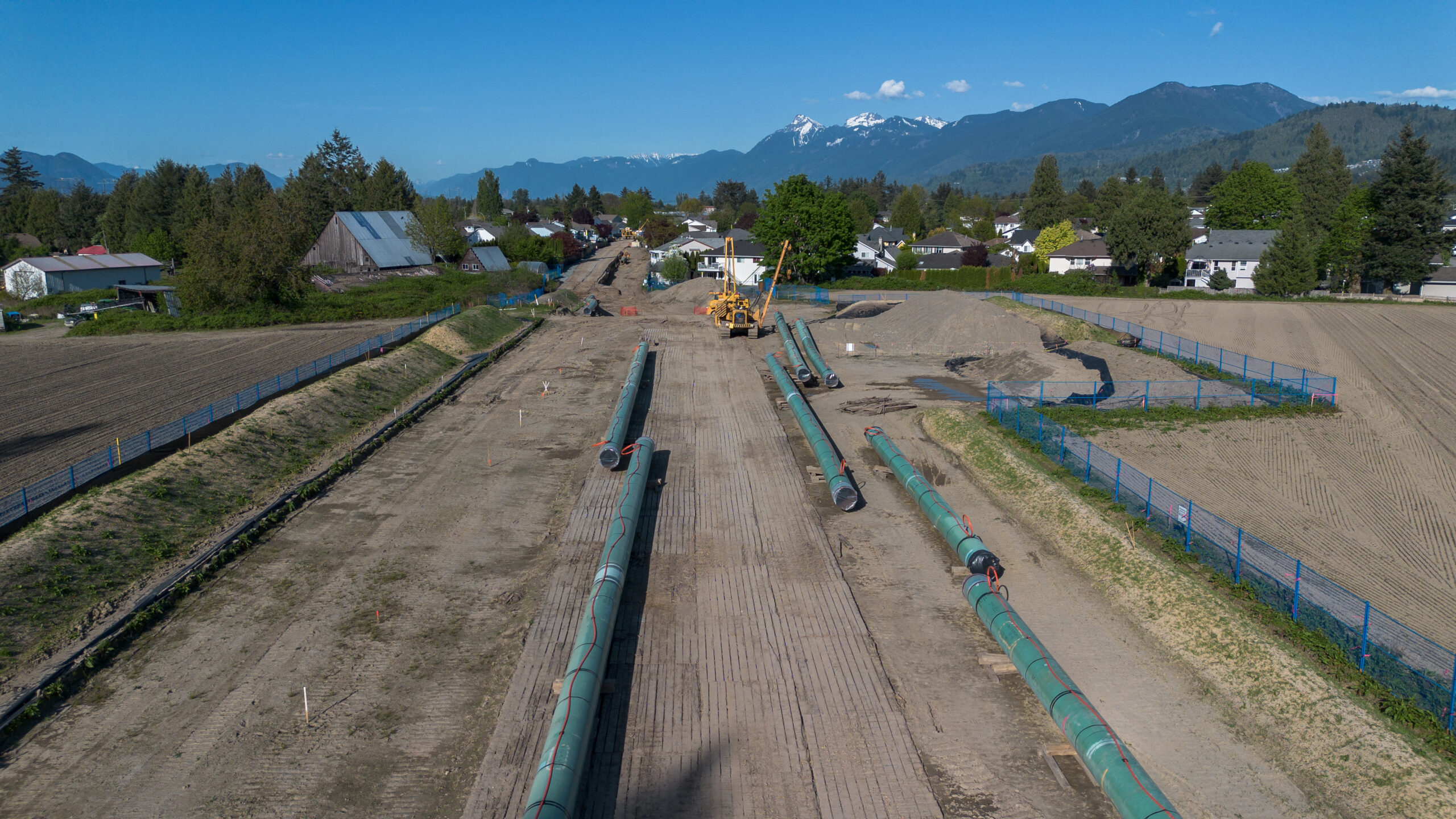
Last August, the federal government-owned Trans Mountain applied to change the plan for its oil pipeline expansion project through Pípsell — changes resolutely opposed by the Stk’emlúpsemc te Secwépemc Nation chief and council, which had previously agreed to the pipeline’s overall construction. Some land defenders have opposed the pipeline since its inception, leading to tension within the nation.
Despite the objections, the Canada Energy Regulator approved the new plans last September and construction is now complete.
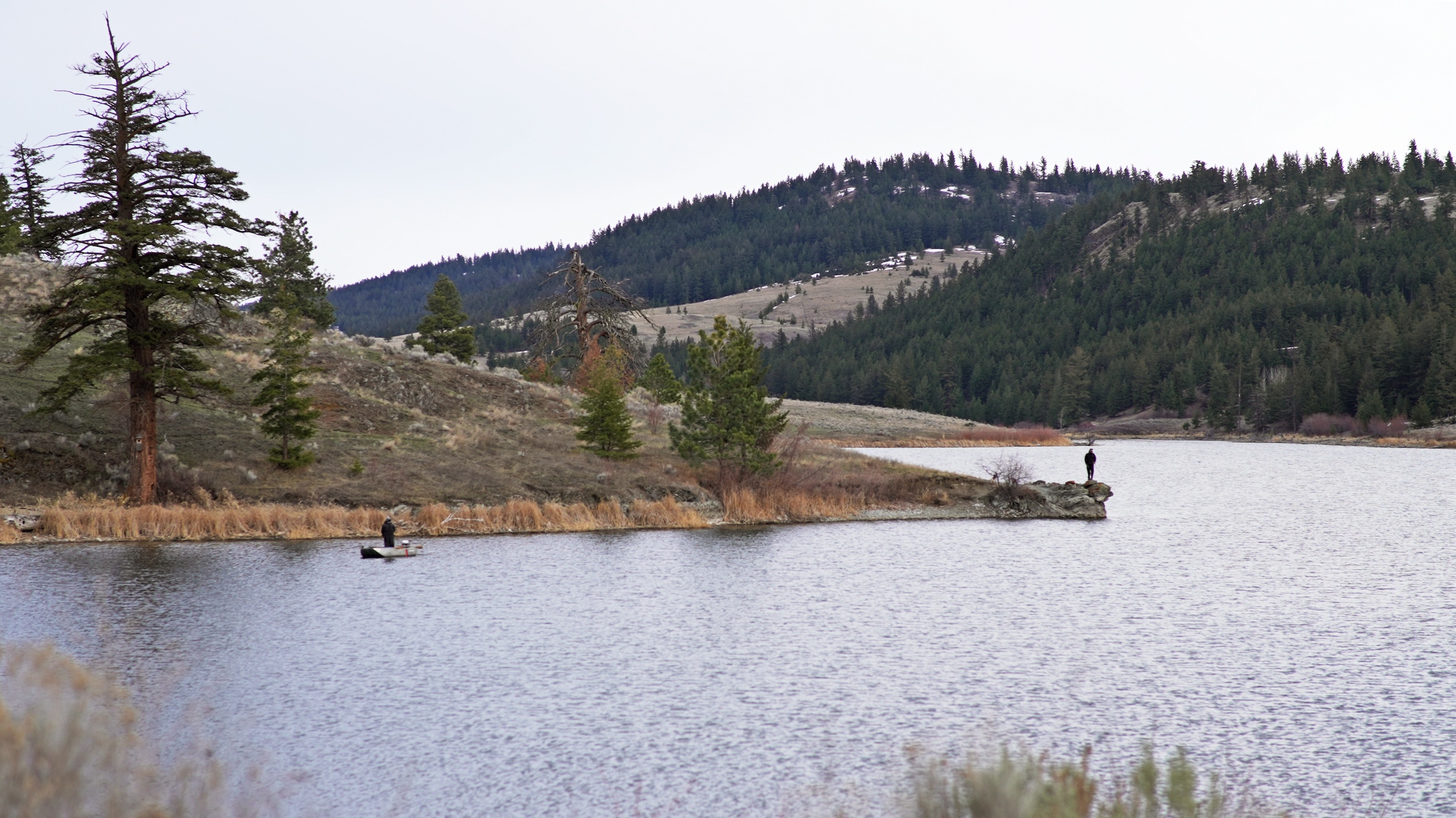
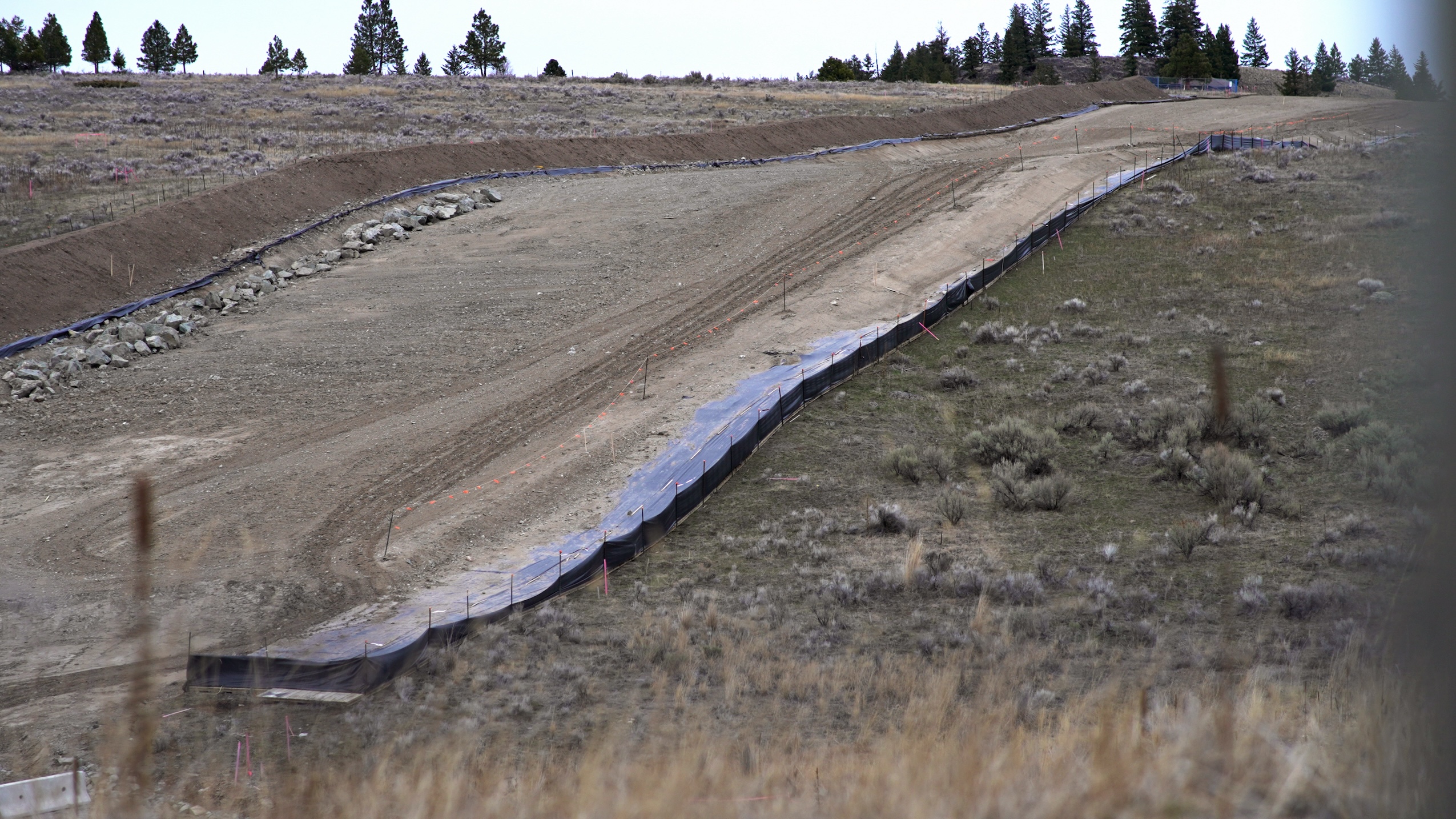
The Trans Mountain pipeline became fully operational on May 1.
In response to Trans Mountain’s changes in Pípsell, the nation’s chief and council said Secwépemc law was undermined. It has now ramped up title claim efforts to affirm land rights over Pípsell and set a precedent on how the nation can protect its territory from industry — and the Crown. What this case means for the future of the pipeline as crude oil starts to flow through Pípsell remains up in the air.
Aboriginal Title — the term in Canadian law that recognizes inherent Indigenous Rights to land or territory — has been achieved before. In 2014, the Tŝilhqot’in Nation in Williams Lake, B.C., won its title case in the Supreme Court of Canada after 25 years of legal proceedings prompted by provincially licensed timber harvesting. The decision granted “full ownership, benefit and control” of a portion of their territory — a first in Canadian history. According to the ruling, once title rights are established, existing and proposed developments within title land may not move forward unless first consulted with the Tŝilhqot’in Nation.
“Achieving title is a court declaration that the Aboriginal Peoples’ title to the piece of land exists, that in law makes clear to the world they are the owners of that land and the rightful decision-makers about that land,” David Robbins, lead counsel in the Tsilhqot’in case, says in an interview. “[Nations] have power to choose whether or not to consent to any use of their land, including industrial projects.”
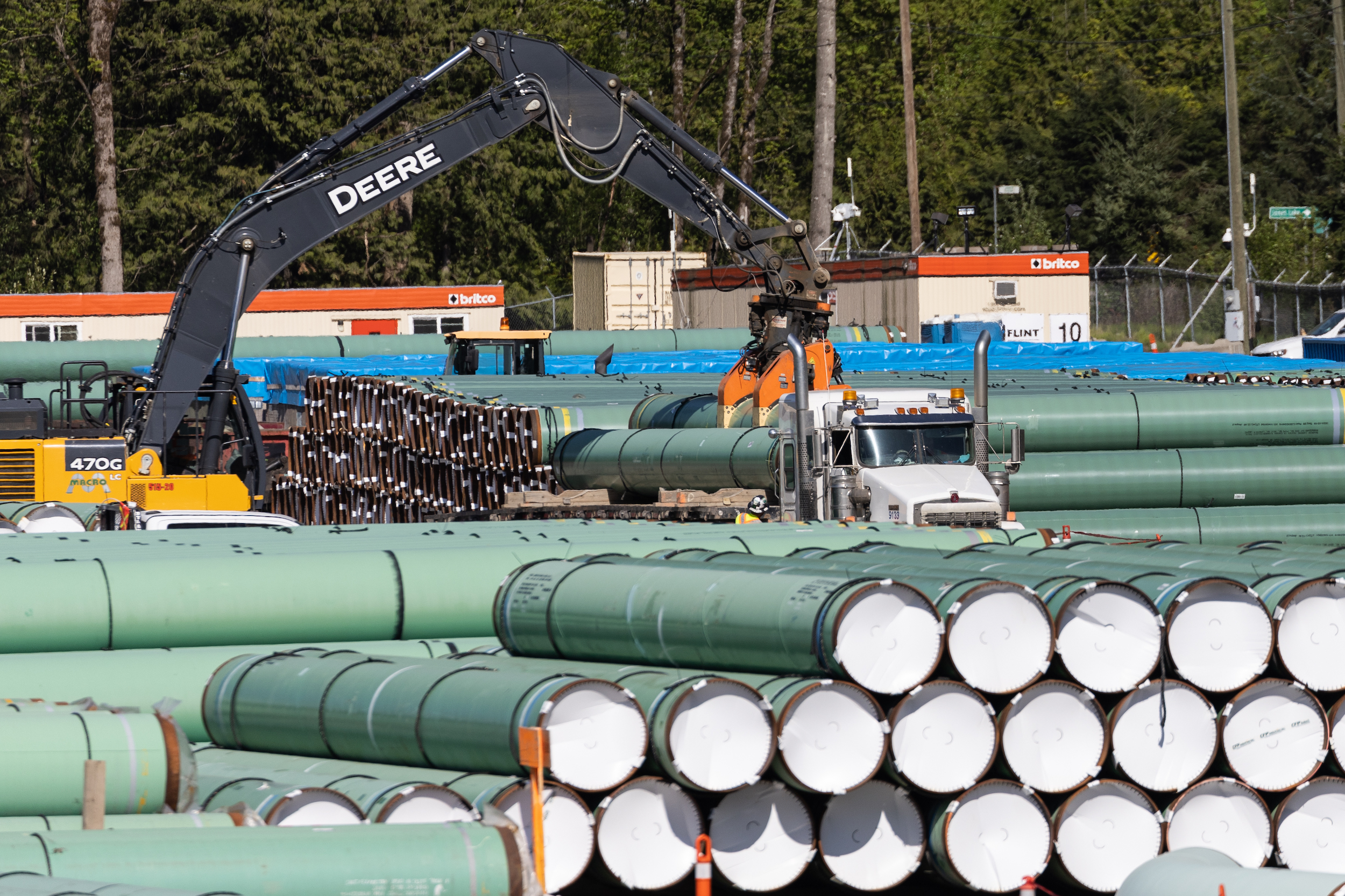
The Stk’emlúpsemc te Secwépemc Nation has been similarly working to assert title claim for years. In 2015, after an open-pit copper and gold mine was proposed, the Stk’emlúpsemc te Secwépemc Nation filed a civil claim with the B.C. Supreme Court to affirm its title claim over the land, saying mining operations in the area have never benefited the nation.
The nation sought the right to use its land according to traditional customs, including participating in its own mining operations and trade systems with other First Nations. The nation filed another claim in 2019, noting no progress was made after the first claim.
Achieving Aboriginal Title over Secwépemc land would “set a precedent” for future legal cases between Indigenous groups and private industry, according to Raven Trust, a charity that raises legal funds for Indigenous groups.
In February, the nation held community workshops to discuss “crucial updates” to its title case. The nation declined to provide The Narwhal with details.
“It’s not the case that as soon as you get title, any kind of government decision that’s been made with respect to that land, that gets thrown out the window,” Safayeni, who represented Amnesty International in the 2014 Tsilhqot’in title case, says. “It’s not as simple as they get title, so the pipeline is dead.”
“But it would give [the Stk’emlúpsemc te Secwépemc Nation] a foothold to argue that now that we’ve established title, the approval and the continued presence of the pipeline is so unreasonable and imposes such a hardship [as to] how we want to enjoy and exercise our right to these lands, that it’s just too much of an infringement and [Trans Mountain] will have to figure out another way.”
Robbins agrees that the implications of the case are not clear at this point. If title was established, he says, “the burden would be on the Crown to prove that the pipeline is justifiable going to the land. If [the Crown] can’t prove that then the question would be, what remedies should the court issue?”
And that, he says, would be something to argue in court.
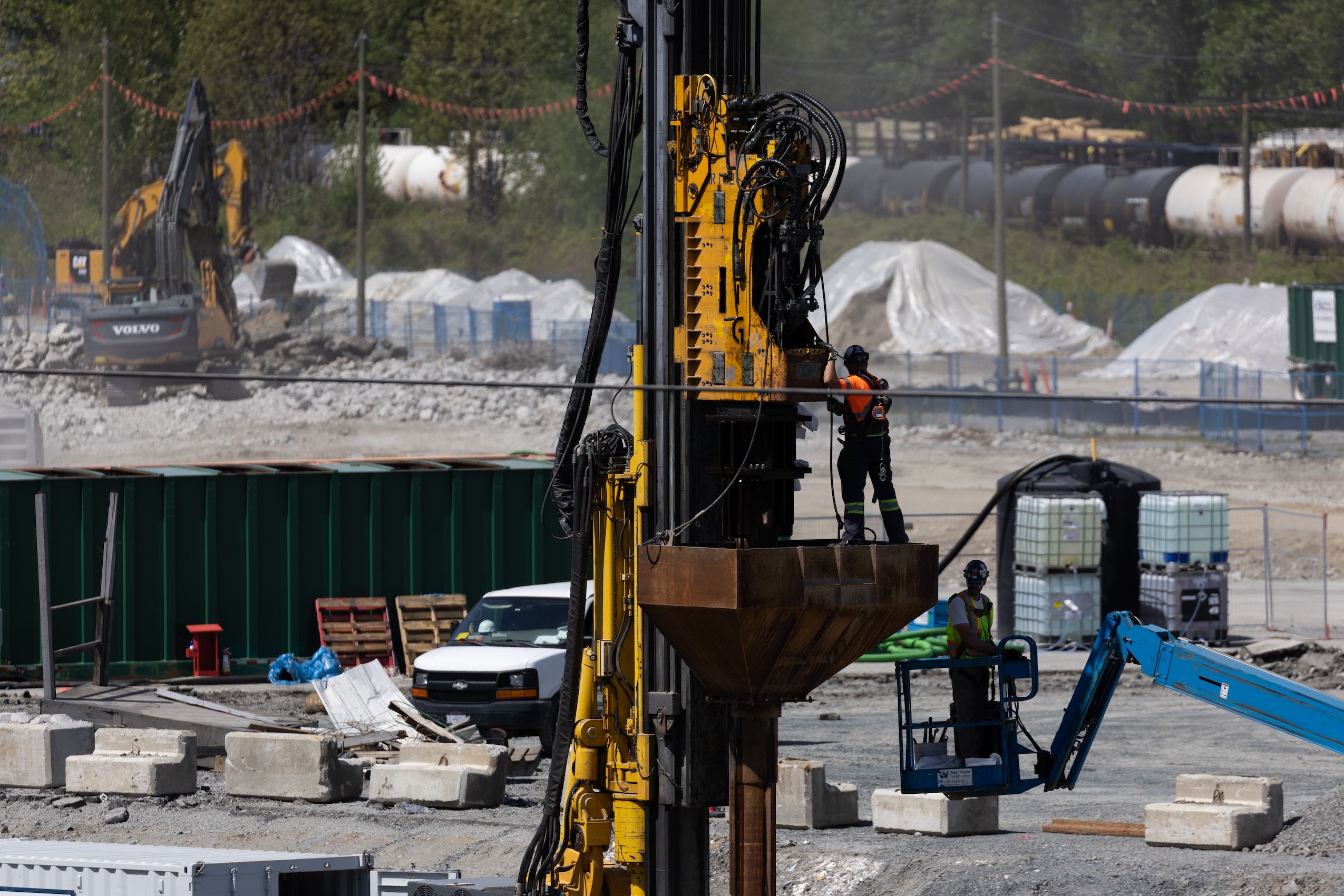
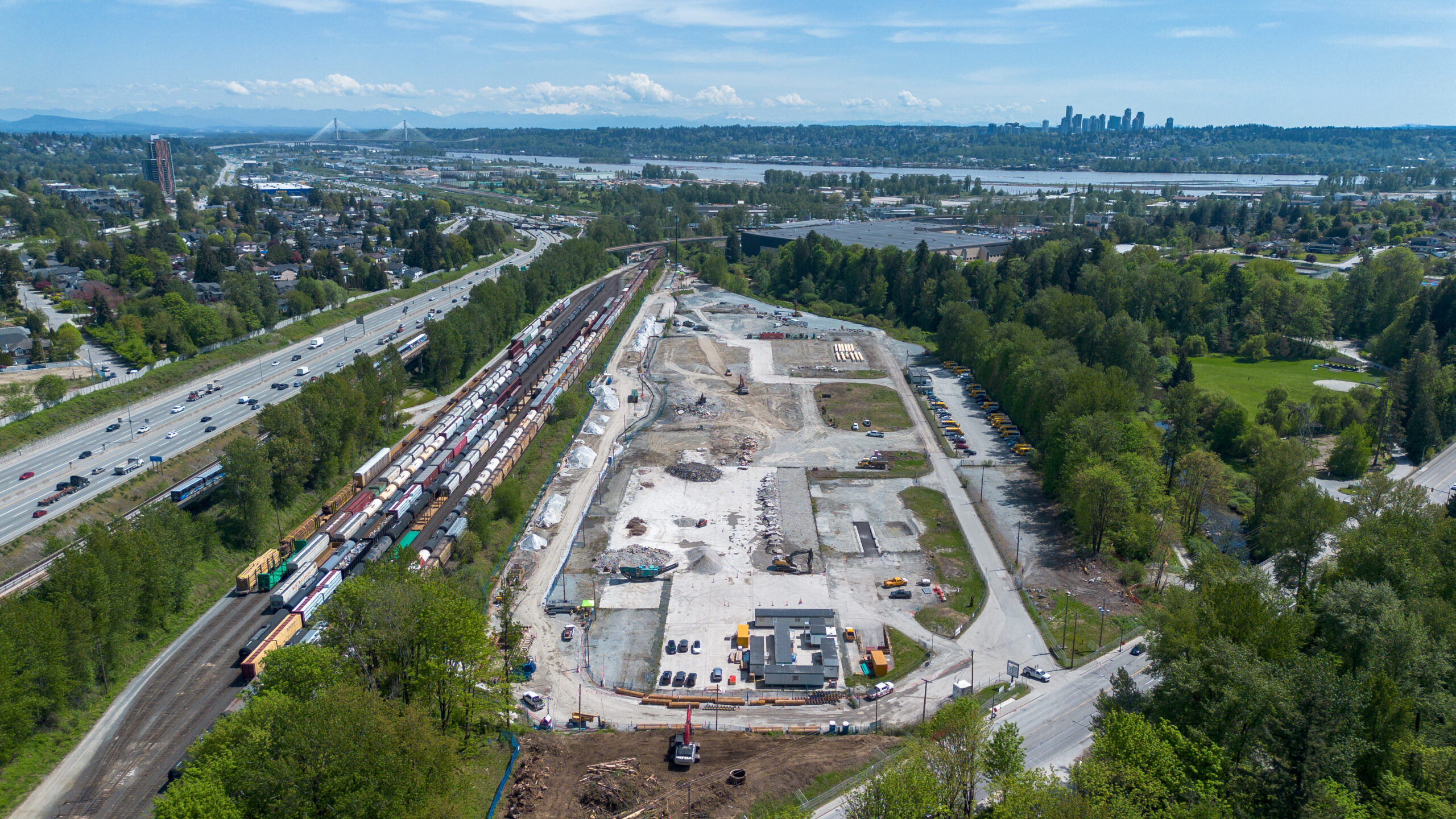
Osgoode Hall Law School associate professor Dayna N. Scott suggests the state could prove Aboriginal Title was affected in cases of compelling public interest that are also consistent with reconciliation. “The case would have to be made that [the Trans Mountain pipeline] meets that test,” Scott wrote in an email to The Narwhal.
What makes this latest round of title claim efforts unique is that the catalyst is an energy project wholly owned by the federal government.
The Trans Mountain pipeline expansion project has been in the works for more than a decade. The project, formerly owned by Texas-based Kinder Morgan, twins an existing pipeline between Edmonton and Burnaby, B.C., and will add approximately 990 kilometres to the route, tripling crude oil flow.
The federal government purchased the project and other assets for $4.5 billion in 2018. Since then, costs have stretched past $30 billion and the project has faced several construction delays.
The latest round of debate kicked off last summer when Trans Mountain filed what’s known as a deviation application for a 1.3-kilometre stretch within Pípsell — essentially, the company wanted to change both the exact route through Pípsell and the method of construction it used to lay the pipe. It had previously been approved to use a technology called micro-tunnelling, known to be less disruptive to the landscape as it happens primarily underground. Instead, it wanted to use a method that included digging open trenches.
In its application, the company said it tried to address issues it encountered during micro-tunnelling attempts, and faced “significant technical challenges.”
The 2023 change directly undid plans set out in a previous 2022 application that had established micro-tunnelling as the construction method, approved by the Canada Energy Regulator and developed after consultation with the Stk’emlúpsemc te Secwépemc Nation.
The lack of consultation on the 2023 application that removed the use of the less-disruptive micro-tunelling method set off alarm bells for the nation. Trans Mountain’s plans, it said, were filed without giving the nation enough time to evaluate the proposed changes. In July, the nation sent a letter to the Canada Energy Regulator stating the application “does not represent a collaborative process.”
The Canada Energy Regulator held a three-day hearing in Calgary last September. In an emailed response to The Narwhal, a spokesperson for the regulator said deviation applications are typically assessed in writing, and an in-person hearing was established for Pípsell after the nation filed its letter. The spokesperson said the regulator accommodated multiple requests for delays from parties in the nation.
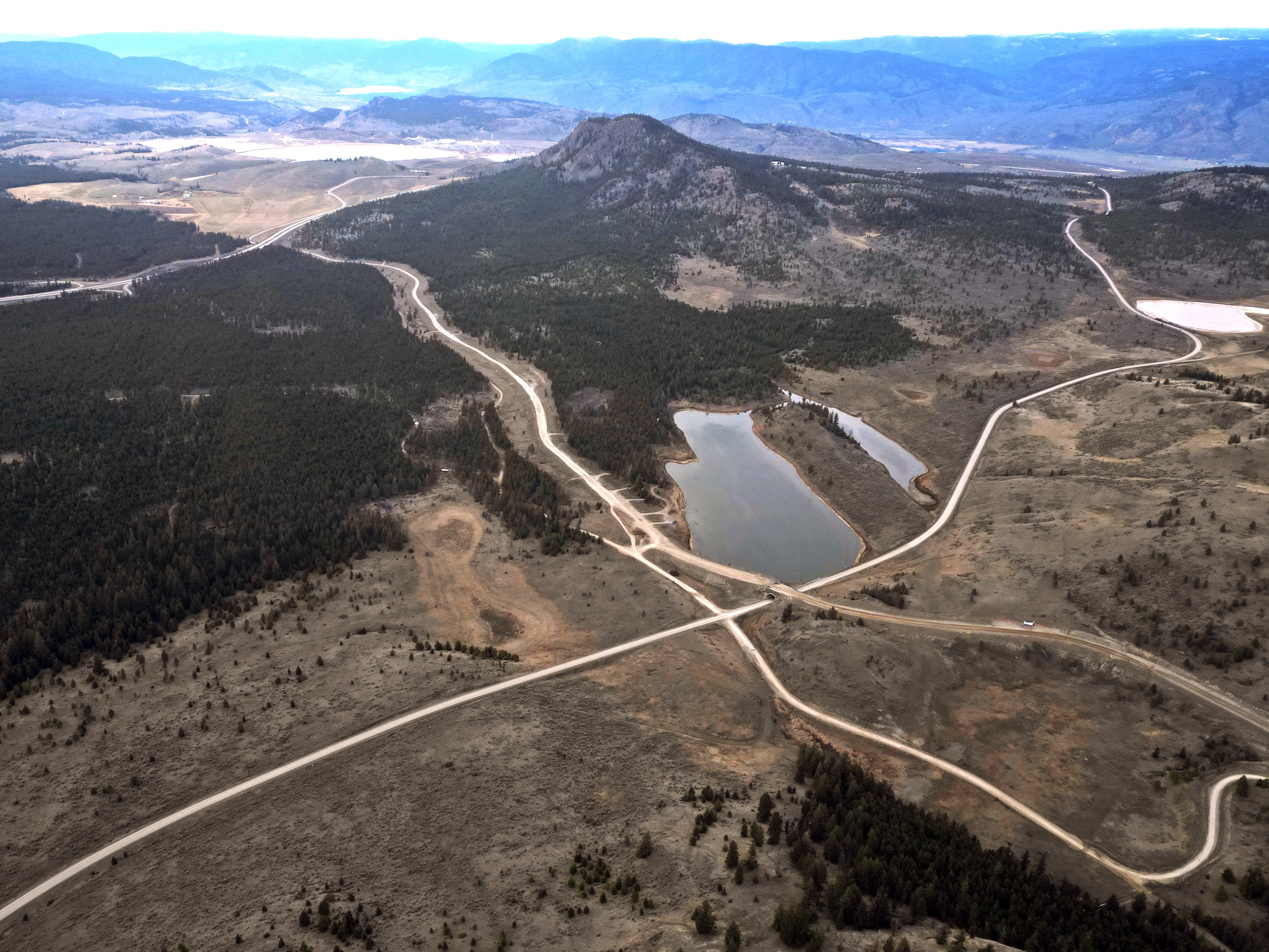
The regulator ultimately approved the deviation and construction went ahead in October.
The regulator told The Narwhal micro-tunnelling was “not technically feasible and that continuing to pursue it could cause more surface disturbance to the area.”
Romilly Cavanaugh, a former environmental engineer with Trans Mountain, disagrees. Cavanaugh, who left Trans Mountain in 1996 and is now opposed to the pipeline expansion project, says micro-tunnelling may be challenging, but not impossible. “I believe that is the main issue: [Trans Mountain] prioritize[s] saving money and going more quickly over the concerns of Indigenous people.”
In December, the B.C. environmental assessment office conducted an inspection at Pípsell and concluded Trans Mountain was doing an adequate job of consulting local Indigenous groups, as well as fencing off and avoiding damaging sensitive archeological features, such as a burial mound. A Secwépemc monitor was on-site during the inspection and confirmed the findings.
According to the Canada Energy Regulator’s report, the Stk’emlúpsemc te Secwépemc Nation said no mitigation, other than rerouting the pipeline around Pípsell, was acceptable; The entirety of Pípsell is sacred — not only the specific archeological and cultural sections — and Indigenous monitoring won’t change the fact the land will be disturbed.
In an email to The Narwhal, a Trans Mountain spokesperson said the company recognized the sacred importance of Pípsell and is “committed to remaining respectful of the spiritual and cultural significance of this land.”
The nation released a statement after Trans Mountain’s plans were approved, saying the decision “undermines Secwépemc law” and failed to recognize Indigenous Rights affirmed under the United Nations Declaration on the Rights of Indigenous Peoples Act.
At the foundation of some of the tensions is the existence of a mutual benefit agreement — a type of agreement that sets out a long-term relationship between Indigenous communities and a project proponent, often including job training, business opportunities and community services.
Trans Mountain says it has entered into 69 agreements with 81 Indigenous communities, including the Stk’emlúpsemc te Secwépemc Nation.
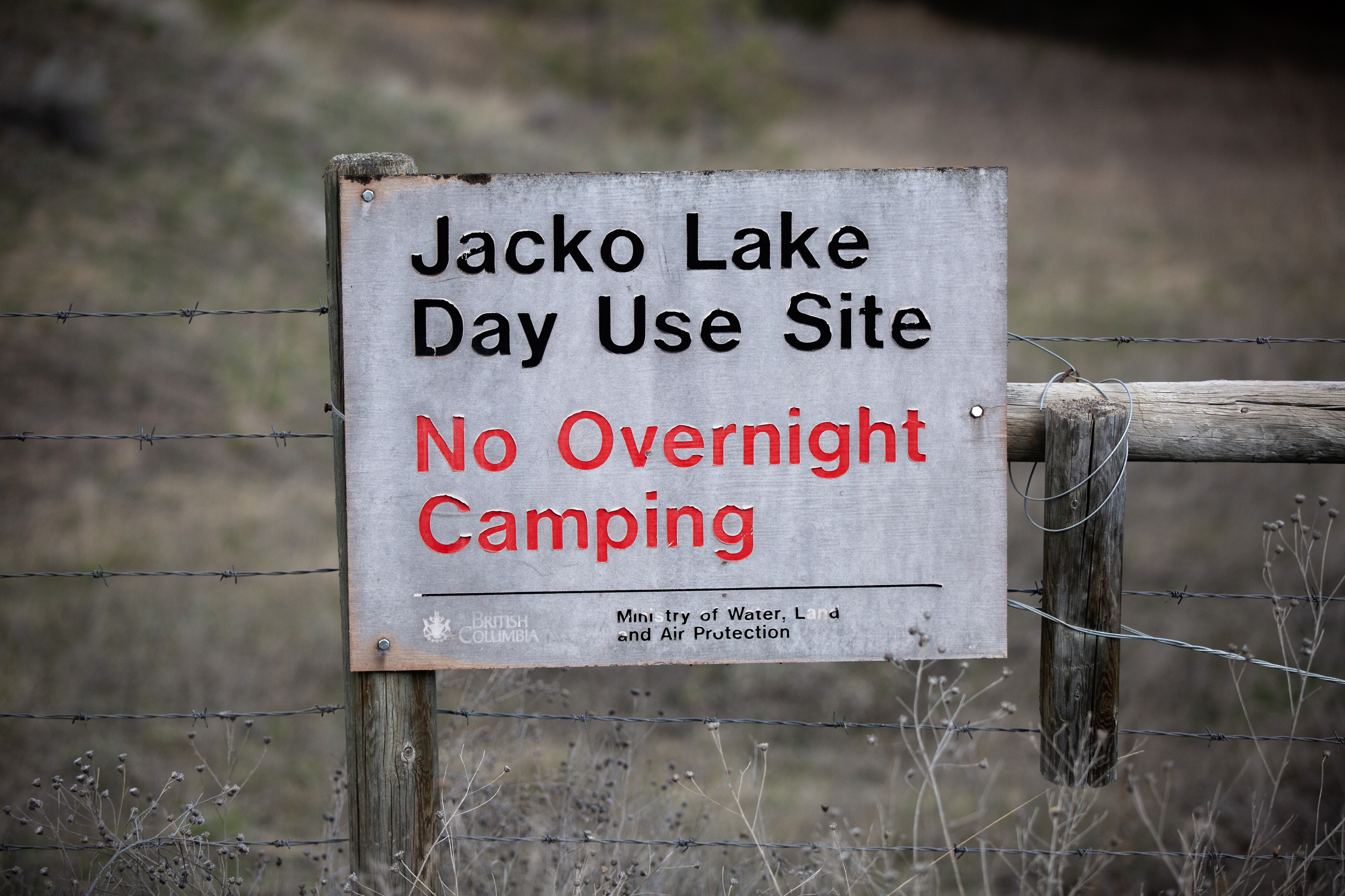
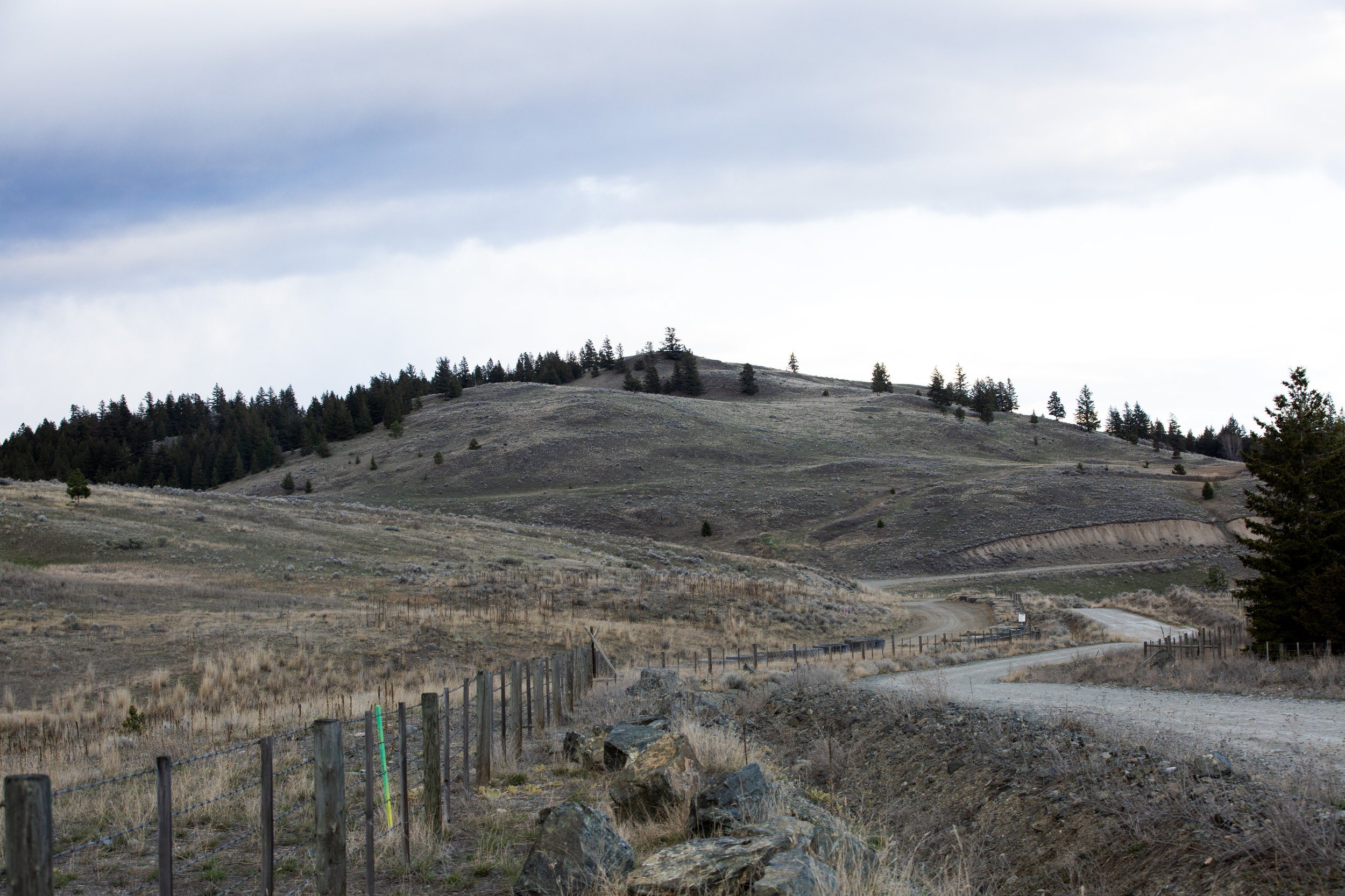
The nation had originally filed a statement of opposition against Trans Mountain’s proposed route in 2019 — but withdrew that statement after signing a confidential mutual benefit agreement with the company.
Industry tends to benefit from the confidential nature of these agreements, according to Shiri Pasternak, an associate professor of criminology at Toronto Metropolitan University.
“It really restricts our ability to scrutinize how Indigenous Rights are being undermined in some cases,” she says.
The Narwhal has previously reported on how benefits agreements can come with clauses prohibiting First Nation leaders from publicly speaking out against a project. While the Stk’emlúpsemc te Secwépemc Nation’s agreement is confidential, the Canada Energy Regulator’s decision report noted how the agreement prioritized ensuring minimal impacts on Pípsell and protecting the nation’s cultural values.
The Canada Energy Regulator report also noted Trans Mountain’s view that the benefit agreement was evidence of the Stk’emlúpsemc te Secwépemc Nation’s consent to the pipeline’s presence in Pípsell. The nation, however, said the agreement alone did not constitute free, prior and informed consent and the deviation into Pípsell was in opposition to the agreement’s conditions. A response to Trans Mountain’s deviation application in 2023 written by the nation’s lawyer, Joelle Walker, said any support or consent to the expansion project is conditional on Pípsell being explicitly protected.
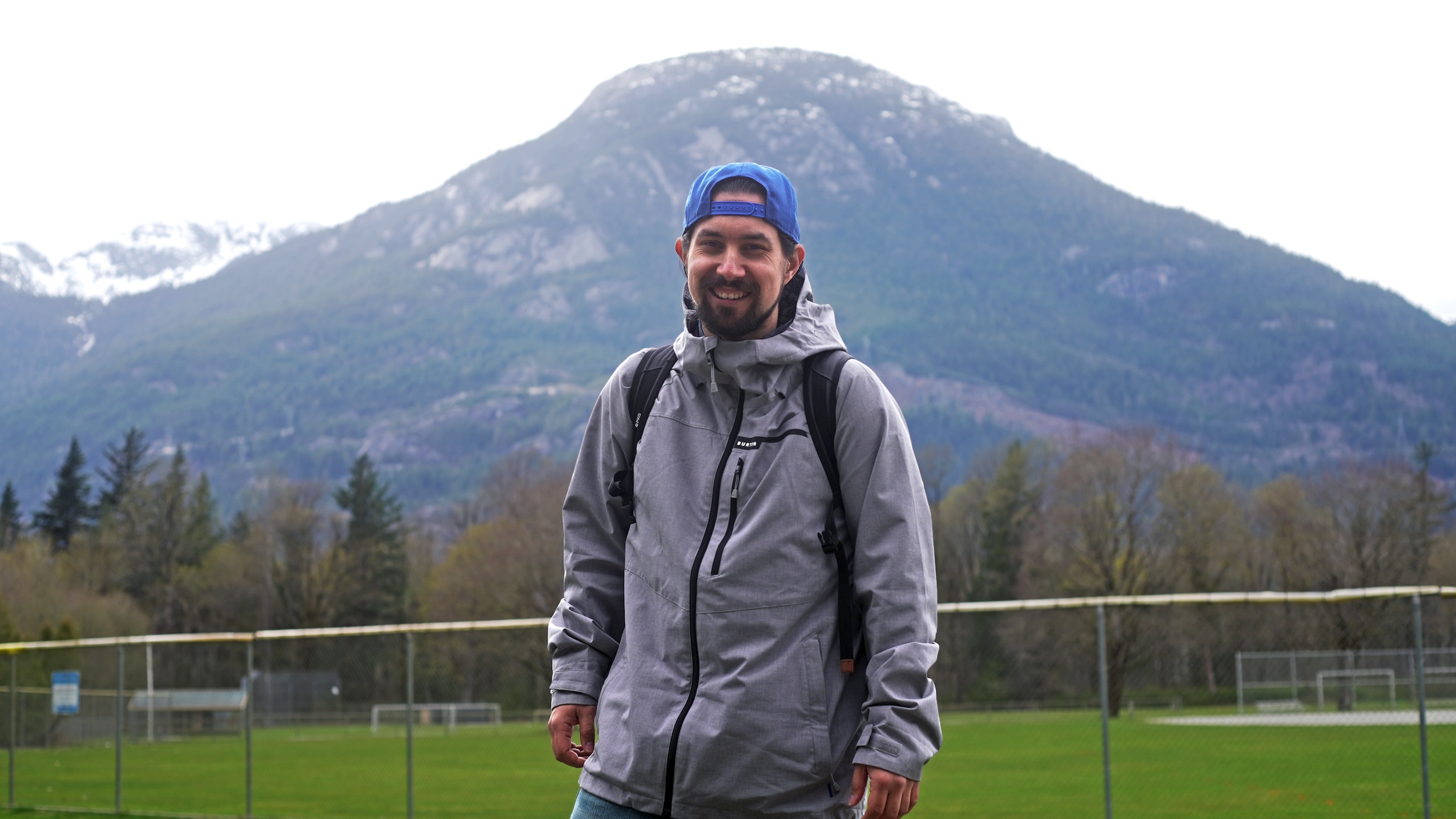
McKenzie says the elected chief and joint council of the Tk’emlúps te Secwépemc Nation and Skeetchestn Indian Band handled all discussions with Trans Mountain, without sharing details with the community.
But for previous industrial proposals, McKenzie said the nation handled consultations differently.
For example, in 2017, the Stk’emlúpsemc te Secwépemc Nation assembled a panel of 26 community members — youth, Elders and family representatives — to discuss the open-pit copper and gold mine project proposed by KGHM Ajax Mining in Pípsell. McKenzie was on this panel, which presented its decision to the chief and council to make the final decision.
After the process, the nation did not give its consent to the mining project, saying in its decision the mine was “fundamentally in opposition to the [nation’s] land-use objective for this sacred site.”
The mine was ultimately rejected by the provincial and federal governments and was the catalyst for the nation’s civil claim at the B.C. Supreme Court to affirm its title claim.
Without that type of community consultation, which is required by Indigenous law, benefits agreements cannot constitute consent to the overall pipeline, McKenzie says. “I can say with 100 per cent certainty that we have not given consent to the pipeline at all,” he says.
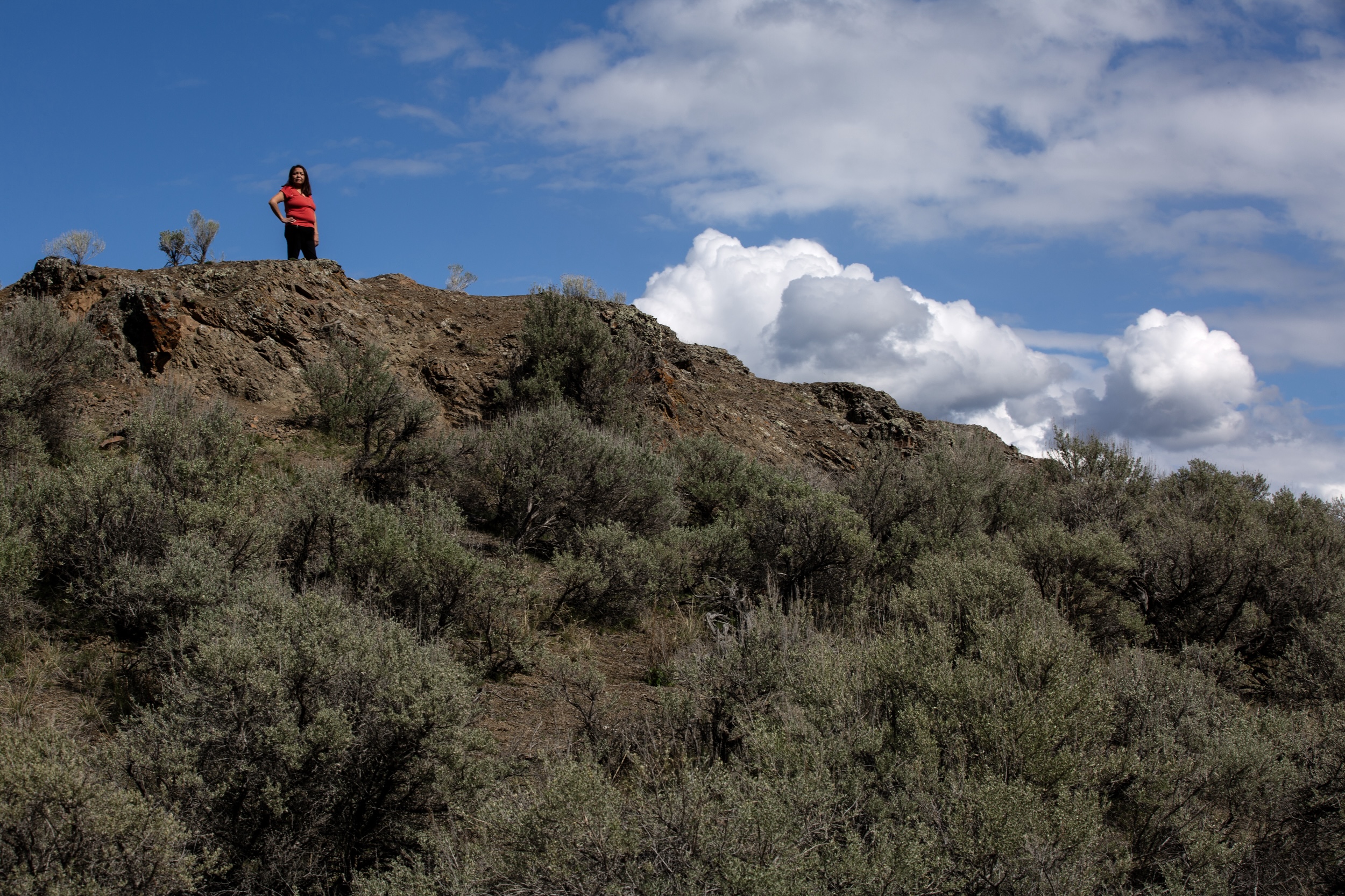
Secwépemc matriarch April Thomas, who has been outspoken against mutual benefit agreements, agrees. She says chiefs and councils that sign into the agreements are “sell outs” that have “lost their way.”
The Stk’emlúpsemc te Secwépemc Nation declined to respond to these allegations, citing legal sensitivities. It referred The Narwhal to a statement saying the views of individual nation members don’t constitute the views of the nation and the joint council is the only body authorized to speak on behalf of the nation.
Thomas believes Trans Mountain was never given consent to build on this land.
“The government of B.C. and these corporations like Trans Mountain pipeline are on unceded territories,” she says. “Our land is not for sale. And even in our belief system, we don’t own the land, the land owns us. We’re here as stewards of the land, to protect and care for the land.”
Meanwhile, crude oil will begin to flow within days.
After years of speaking out against the pipeline, McKenzie intends to take a step back.
“As Knowledge Keepers, as spiritual peoples, you get to a point where you did everything you can do,” he says. “If this is our last stand, what if our laws come to fruition? Our Elders say, [the] breaking [of] our law is already happening and that’s why we have climate change. …The land and the sky turns on us.”
Updated on May 1, 2024, at 10:24 a.m. PT: The headline and the story were updated to reflect the Trans Mountain pipeline expansion becoming fully operational.
Get the inside scoop on The Narwhal’s environment and climate reporting by signing up for our free newsletter. Angello Johnson’s shoulders burn, and his arms...
Continue reading
First Nations are leading efforts to make sure lake sturgeon can find a home in...

We’re excited to share that an investigation by The Narwhal is a finalist for the...

A new documentary, Nechako: It Will Be a Big River Again, dives into how two...
